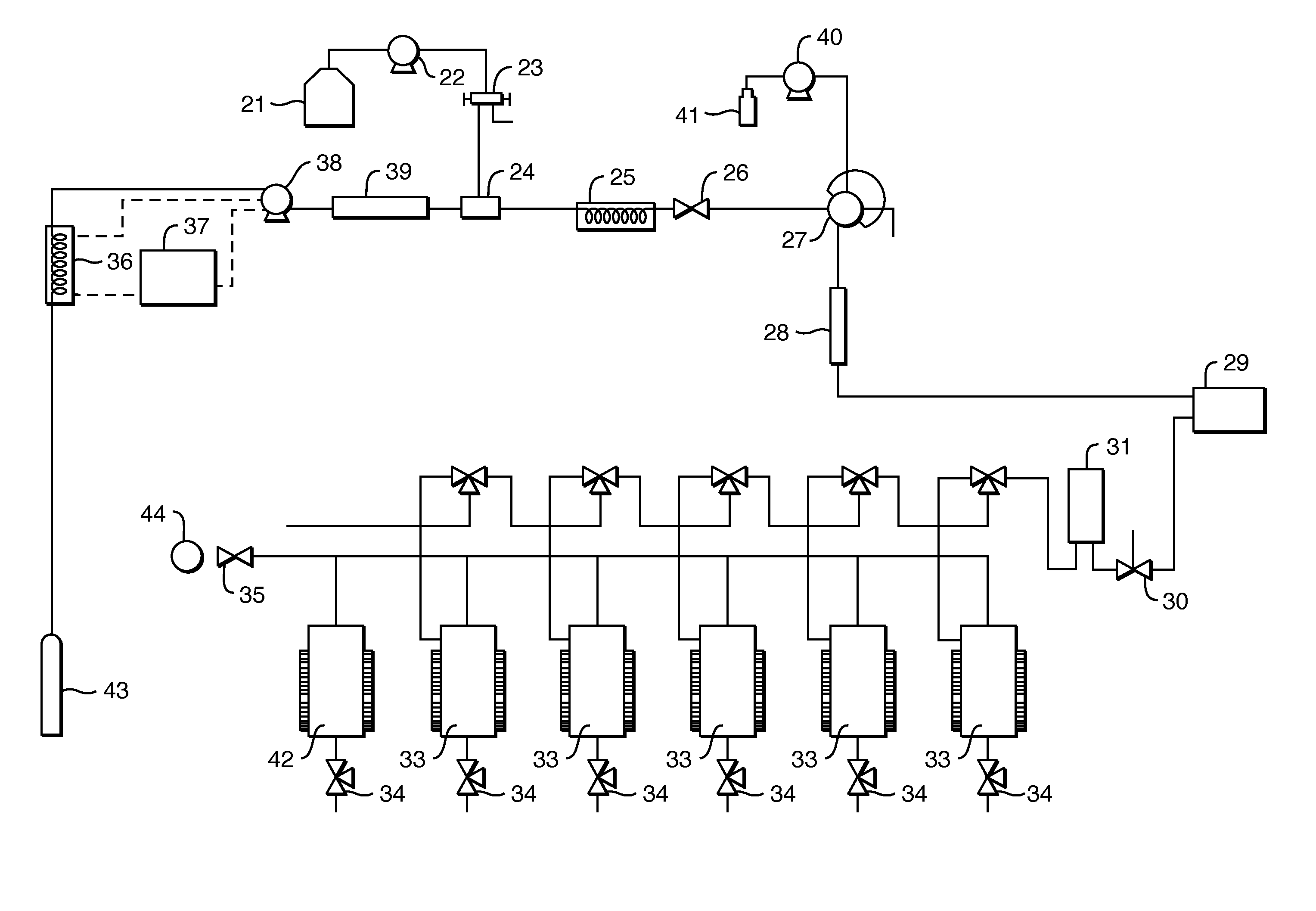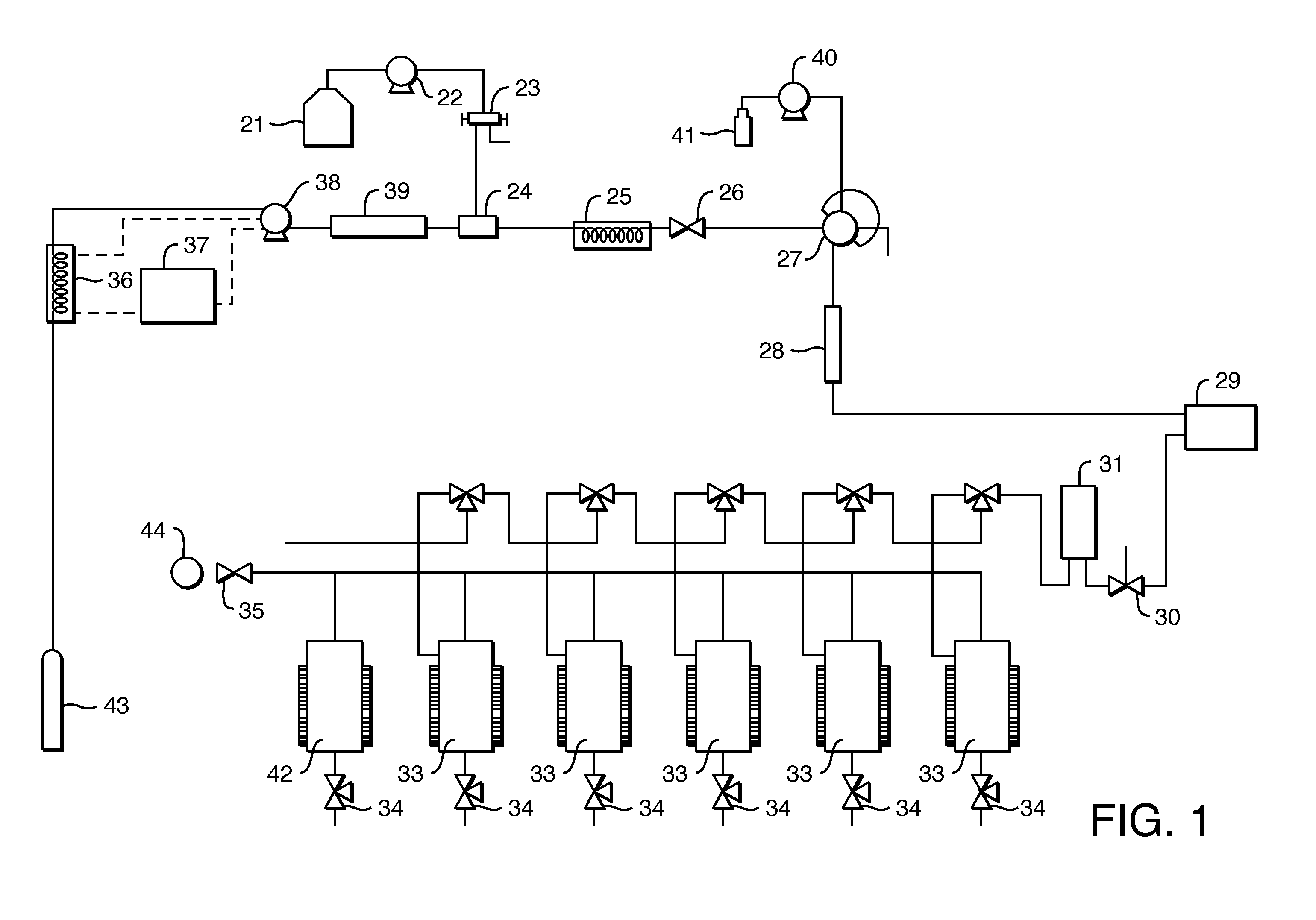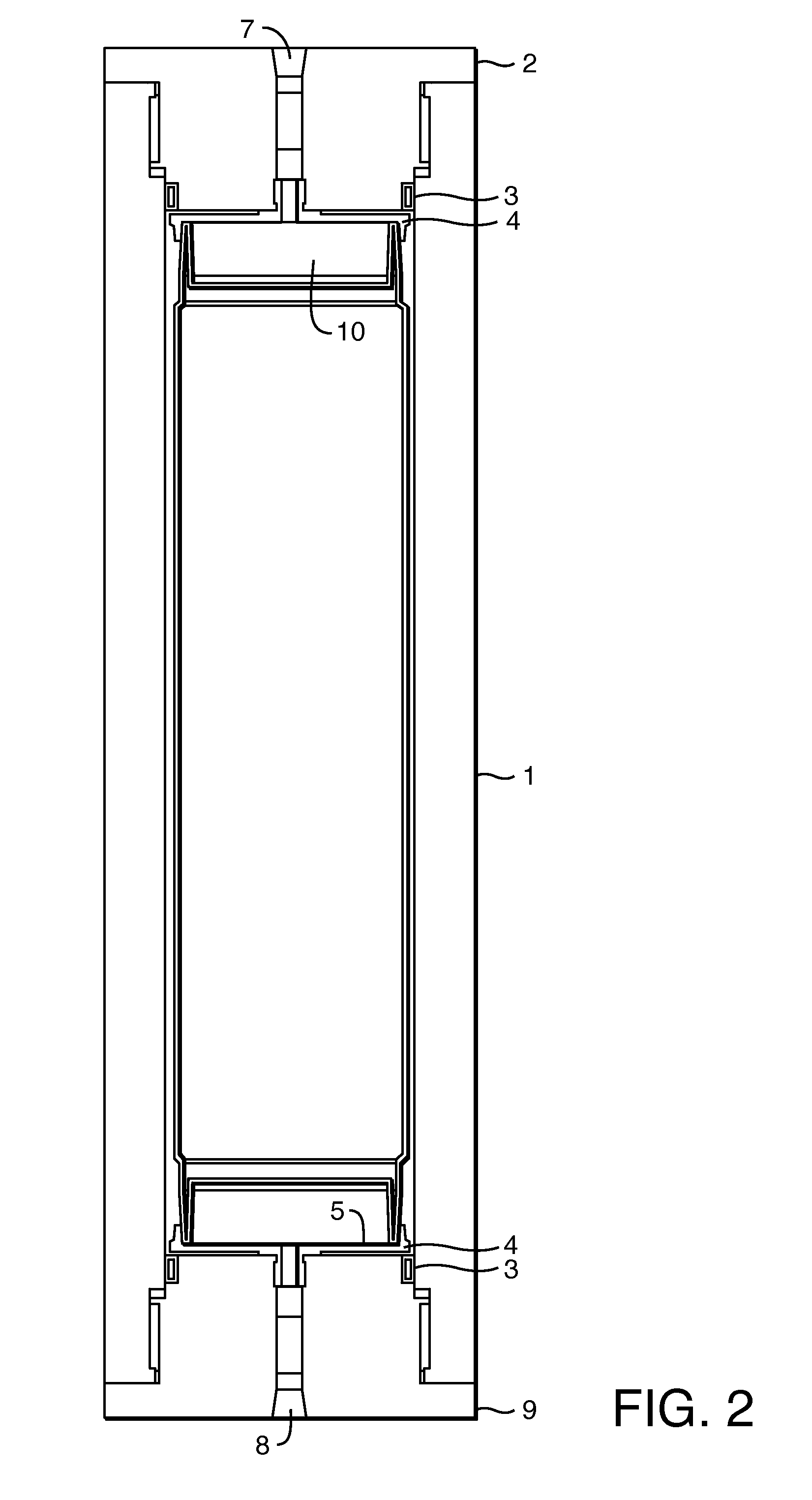High pressure flash chromatography
a high-pressure flash chromatography and chromatography technology, applied in the direction of ion-exchangers, separation processes, instruments, etc., can solve the problems of significant pressure drop, and achieve the effect of reducing the cost of recycling waste solvents or reducing the cost of them
- Summary
- Abstract
- Description
- Claims
- Application Information
AI Technical Summary
Benefits of technology
Problems solved by technology
Method used
Image
Examples
example 1
[0055]6.5 g of an Acetaminophen-Benzoic Acid sample solution was dissolved in 100 ml of methanol at standard temperature and pressure (STP). The total flow rate was set at 150 g / min with the main compressed fluid being carbon dioxide, with a gradient of 5%-35% methanol over 10 minutes and thereafter it was maintained at 35%. The operating conditions were as follows: 1) back pressure on the flash cartridge was maintained at 100 bar 2) temperature of the mobile phase (carbon dioxide and methanol) was maintained at 35 C; and 3) the heat exchanger was maintained at 35 C. Technically the pressure in the vessel is the back pressure on the cartridge+the delta pressure across the cartridge. Since the delta P is small, the pressure in vessel is nearly the same as the back pressure. The sample was introduced into the system using an injector loop and 230 mg of the sample was loaded. Two fractions from these injections were collected. Using the Thar Superchrom software fraction 1 was found to ...
example 2
[0056]3.5 g of a sample containing 1.3052 g of Acetaminophen and 2.1947 g of Benzoic Acid was dissolved in 50 ml of methanol at STP and loaded directly onto a sample loading cavity at the top of the flash cartridge. The pressurized vessel was then closed and carbon dioxide, as the mobile phase, was introduced into the system and allowed to equilibrate. Carbon dioxide was pumped at 150 g / min with a gradient of 5%-35% methanol over 10 minutes, and thereafter it was maintained at 35%. The operating conditions were as follows: 1) back pressure was maintained at 100 bar; 2) temperature of the mixed mobile phase (carbon dioxide and methanol) was maintained at 35° C.; and 3) the heat exchanger was maintained at 35° C. Sample fractions were collected. Using the Thar Superchrom software fraction 1 found to be 99% pure Acetaminophen, and fraction 2 to be 99.9% pure Benzoic Acid. FIGS. 7 and 8 illustrate the separation.
example 3
[0057]7.18869 g of a sample containing 2.85839 g of Acetaminophen and 4.3303 g of Benzoic Acid was dissolved in methanol at STP. Carbon dioxide was the compressible fluid and was pumped at 150 g / min. A mobile phase was created with a gradient of 5%-35% methanol over 10 minutes, and thereafter it was maintained at 35%. The operating conditions were as follows: 1) back pressure maintained at 100 bar; 2) temperature of the mobile phase (carbon dioxide and methanol) was maintained at 35° C.; and 3) the heat exchanger was maintained at 35° C. The sample was loaded into the mobile phase using an injection pump through a tee immediately before the column. 718 mg of sample was loaded onto the column. Fractions from these injections were collected. Using the Thar Superchrom software fraction 1 was found to be 86% pure Acetaminophen, and fraction 2 to be 99.9% pure Benzoic Acid. FIGS. 9 and 10 illustrate the separation.
PUM
 Login to View More
Login to View More Abstract
Description
Claims
Application Information
 Login to View More
Login to View More - R&D
- Intellectual Property
- Life Sciences
- Materials
- Tech Scout
- Unparalleled Data Quality
- Higher Quality Content
- 60% Fewer Hallucinations
Browse by: Latest US Patents, China's latest patents, Technical Efficacy Thesaurus, Application Domain, Technology Topic, Popular Technical Reports.
© 2025 PatSnap. All rights reserved.Legal|Privacy policy|Modern Slavery Act Transparency Statement|Sitemap|About US| Contact US: help@patsnap.com



